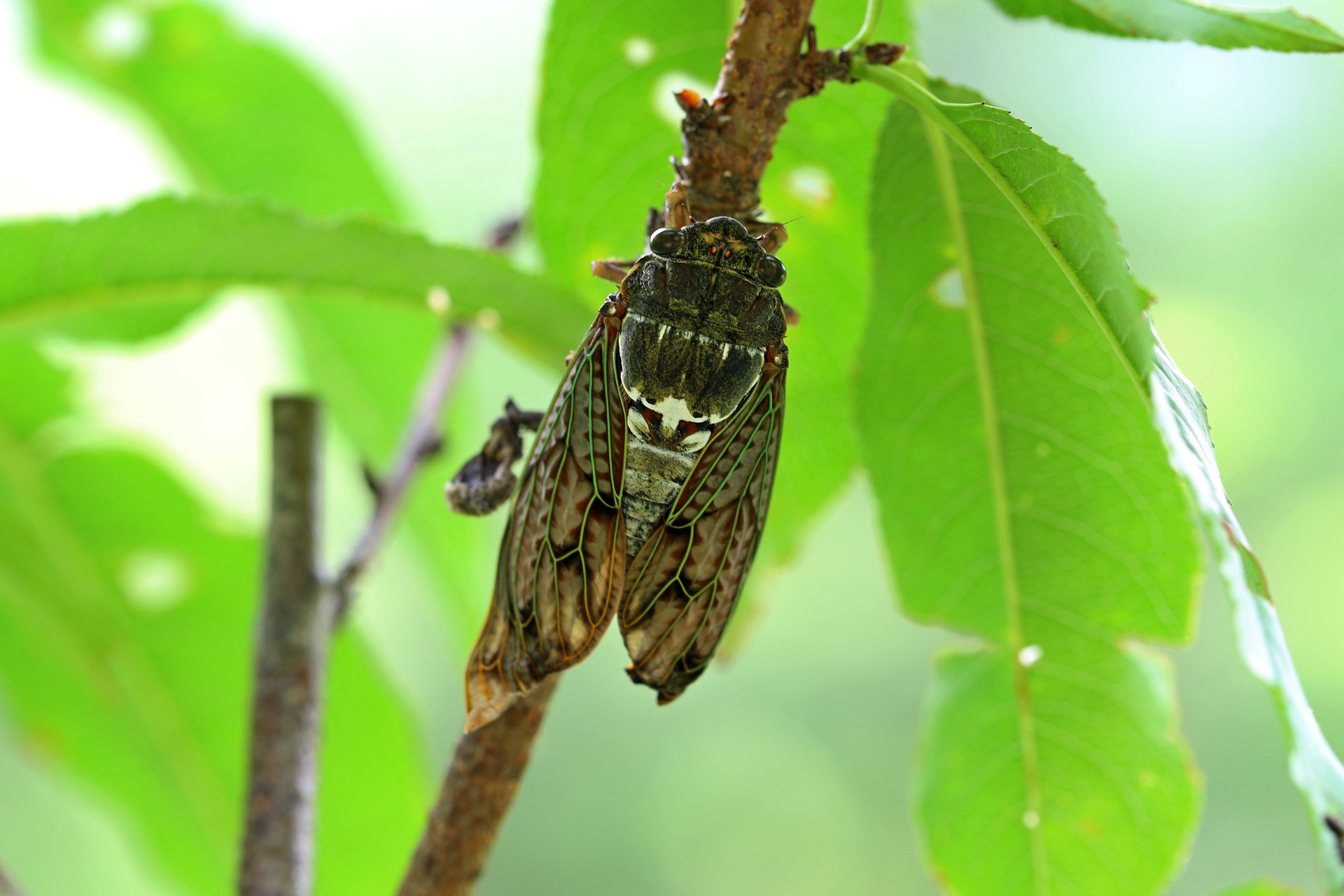This year, a noteworthy natural occurrence is taking place in Illinois. The periodical cicadas are surfacing after spending 17 years underground, causing both interest and mild disturbance among the inhabitants. Their emergence, known as the double brood emergence of 2024, has drawn attention for its sights and sounds, especially in suburban areas such as Park Ridge and Buffalo Grove.
Cicadas’ Extended Life Cycle
The periodical cicadas are coming up from the ground after years of living below the surface. There are two categories of these insects, ones that emerge every 13 years and ones that return every 17 years. The majority of their lifespan is spent under the earth’s surface until they appear when soil temperature reaches 64 degrees Fahrenheit.
- Lifespan, Cicadas live underground for either 13 or 17 years.
- Emergence, they come to the surface when soil becomes about 64 degrees Fahrenheit.
- Reproduction, their main aim after coming to ground level is reproduction.
University of Illinois’ Ken Johnson explains that male cicadas initiate a loud buzzing sound to attract female cicadas around four or five days after they come out from beneath the soil. The females respond by flicking their wings, indicating readiness to breed. Following mating, females can lay between 500-600 eggs in woody plants.
About Cicada Sounds
Hunter Hughes remarked that this process was detailed in nature, so much so that if we humans tried to make similar noises, we would need our chests buckling inwards for us to recreate these sounds constantly resetting our ribs back into position afterward.
Cicadas are well known for their extremely loud buzzing, which can go up to 70 or 80 decibels. This noise, akin to that of a vacuum cleaner, is created by males using a pleated structure in their chest called a tymbal with the intent to garner attention from the females.
Derke Hughes from the Naval Undersea Warfare Center explained this process as being quite intricate. He proposed that if humans were to mimic a similar process, it would require collapsing our chest walls and then letting our ribs recoil repetitively.
Cicadas in Nature’s Food Web
Cicadas don’t harm humans and pets because they don’t sting or bite. Dr. Cynthia Gonzalez of Family Pet Animal Hospital in Lincoln Park reassured pet owners mentioning cicadas do not possess any harmful toxins but eating them in large quantities could upset a pet’s digestive system.
Cicadas are food for creatures like birds, raccoons, bears and various other insects. A known predator is the cicada killer it’s an oversized hornet that specifically hunts cicadas.
Cicada Situation in Surburban Illinois
In places like Park Ridge along with other suburban areas people have been observing these insects on trees and grounds. Their impact varies from person to person. Some see it as interesting while others disagree.
Christina Cosgrove, who lives in Park Ridge had mentioned her kids having fun watching these cicadas make their appearance while they were doing work around the garden meanwhile another local named Nikki Allen, let her kids capture them for some time before letting them free again for fun.
How Plants can be Protected from Cicada
Cicada impact isn’t always negative, but they can potentially harm young plants and trees. To prevent damage, Cathy Meyer and her neighbor, Nancy Kwasigroch, use nets to protect their trees from cicadas. Cathy believes a tree grew slower because of the cicadas’ 17 years ago, hence she’s taking precautions now.
Tracking Cicada Sightings
Create by Dr. Gene Kritsky of Mount St. Joseph University in Cincinnati, the Cicada Safari app helps track sightings of cicadas throughout the U.S. Areas such as Downers Grove, Oak Park and Palos Park are noteworthy for their large amounts of appearing cicadas.
Dr. Gene Kritsky added that both Brood XIII and Brood XIX emerging together is unusual event that hasn’t been observed for over 220 years or longer. The notable emergence in 2024 has been documented with at least 40k entries submitted so far on the app.
Environmental Contribution from Cicadas
Cicadas contribute significantly to our environment. As per U.S Environmental Protection Agency, after decaying they provide nourishment to the soil, when alive aerate lawns, add nutrients back into the ground after dying while improving water penetration also maintain birds and other predators through providing them food.
Conclusion
The big emergence of cicadas in 2024 is a unique natural occurrence, getting both interest and mild disturbance for the residents of Illinois. From loud mating calls to serving as integral part of food chain along with ecosystem these bugs remind everyone about interesting cycles happening often times inside nature. Even though being temporary annoyance for some these bugs presence shows how persistent and intricate nature can be.










+ There are no comments
Add yours